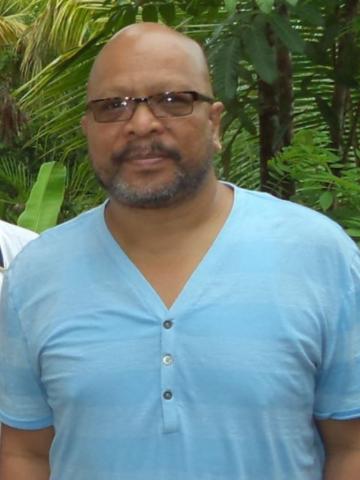How do we avoid comparing our experiences and creating a hierarchy of oppression?

Learning
I was having dinner with friends when the table conversation turned to the colonial oppression of and racial discrimination against Indigenous Peoples of Turtle Island. Included was a discussion on residential schools that Indigenous children were forced to attend and the Sixties Scoop—a time in the 1960s to 1980s when thousands of Indigenous children were taken from their families by the Canadian child welfare system and put up for adoption in mostly non-Indigenous families. Several people around the dinner table were keenly aware of the consequences of these heinous government programs.
Then one of my racialized friends made a remark that caused the conversation to take a different turn: “I understand and certainly sympathize with the oppressive experiences of Indigenous people, but what about the discrimination and racism I have experienced as a racialized person since I came to Canada?”
It was definitely a question that many immigrants from countries previously colonized by Western countries ask silently. How does one honestly reflect on the different colonial and racist experiences among Indigenous and racialized peoples? For those among us who are not White settlers on Turtle Island, how do we avoid comparing our experiences and creating a hierarchy of oppression?
At the dinner table that night were White friends who had been involved in social justice advocacy work as professionals at some point in their careers. For them, acknowledging the system of oppression and racism in this country called Canada is an ongoing confession and also moves them toward action. After all, their collective identity as White people places them among the occupiers of racial power in the system. The question posed by our racialized friend, however, moved them outside the conversation as there was not much they could really offer in response. This was now an uncomfortable conversation for the racialized folks around the dinner table.
It reminded me that being a social justice advocate does not necessarily give licence to be part of all social justice conversations, even if one might identify as an ally. Advocacy also needs to be an expression of mercy. This means, at times, intentionally leaving a conversation to those affected by the subject and accompanying them with however or whatever is concluded. The conversation among the racialized folks that evening ended with admitting that we have more learning to do to better understand the complex dynamics at work. For example, as racialized peoples, we needed to learn more about how to validate the particular life experiences of Indigenous peoples—as well as about how racism affects Indigenous and diverse racialized peoples differently. We also needed to discover more about how colonialism and current governmental policies continue to negatively affect Indigenous peoples today.
On the way home, my partner Kathy (who is a White person) commented, “That was interesting. I mean listening to a conversation among non-White friends comparing experiences of oppression and racism. I guess it’s a good reminder when to be silent in that type of conversation.” “Yes,” I replied, “but it’s not always a virtue for White folks to be silent when the uneasy and uncomfortable situation to talk about racism presents itself.” “Like when, then?” she asked. “I can think of situations when a White person can offer their critical thoughts when White folks are a part of what brought on a racist experience. Or when a White person needs to correct another White person who is exhibiting racist behaviour. Silence is not an option when harm against Indigenous and racialized folks is expressed verbally or in action,” I explained.
For sure, though, the work of processing the issue posed by our racialized friend was for the racialized folks at that dinner table. And as a racialized person, I appreciated that our White friends that evening mercifully listened to a conversation that was beyond their experience. But if they had chimed in with their prescribed solutions or ideas, the evening would have led instead to a case study on how Whiteness once again tried to solve the “problem” of racialized peoples no matter how well-intended that might be. If that had happened, I would hope one of our White friends would have identified the problem at hand and called out a correction.
Faith Reflection
Micah 6:8 issues the call “To act justly and to love mercy and to walk humbly with your God” (NIV).
Unfortunately, the “love mercy” piece is often viewed as an attitude one should hold. But it is more than an attitude. “Mercy” is to act in love. This is what prompted John Caputo to write, “The works of mercy are the kingdom of God.”*
This includes the act of silence when one intentionally listens instead of being tempted to prescribe solutions to problems outside one’s experience.
Living It Out
For Racialized People
How are the experiences of colonial oppression of and racial discrimination against the Indigenous Peoples of Turtle Island different from your own experiences of racial discrimination as a racialized settler?
For White People
For one week, consciously identify the times when you intentionally remain silent during a conversation in which you have no experience of the subject. Remember not to congratulate yourself for the learning you gained during your silence. Instead, reflect on silence as an act of mercy.
—Emo Yango (he/him) works at the national office of The United Church of Canada as a Growth Coordinator in the Organizational Development and Strategy Unit. This includes working with migrant/diasporic communities of faith, racial justice, and intercultural ministries. Previously he worked overseas in international development in various interfaith contexts. He holds a doctorate in missiology.
*John Caputo, Hoping against Hope: Confessions of a Postmodern Pilgrim (Minneapolis: Fortress Press, 2015), 62.